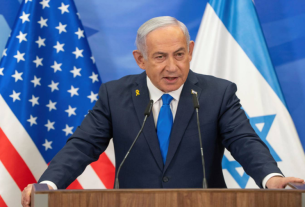Geneva – June 20, 2025 — The United Nations Human Rights Office has called for the urgent de-escalation of hostilities between Israel and Iran, following a deadly exchange of missile fire that has killed over 220 civilians and injured more than 1,000 since June 13.
UN Deputy High Commissioner for Human Rights Nada Al-Nashif emphasized the critical need for both parties to adhere strictly to international humanitarian law, especially the principles of distinction, proportionality, and military necessity.
“It is imperative that both sides fully respect international law, in particular by ensuring the protection of civilians in densely populated areas and of civilian objects,” said Al-Nashif. “We urge all those with influence to engage in negotiation as a matter of priority.”
Civilian Impact and Humanitarian Concerns
The recent Israeli airstrikes on over 100 targets—including military, nuclear, and infrastructure sites across Iran—have resulted in 224 confirmed deaths, including 74 women and children, according to Iranian health authorities. Over 1,000 civilians have been injured, further straining Iran’s already fragile humanitarian conditions.
Iranian Ambassador Ali Bahreini condemned the Israeli strikes on residential areas and essential services, including reported damage to drinking water infrastructure, calling them “acts of war against humanity.”
Risks of Nuclear Radiation and Legal Violations
The International Atomic Energy Agency (IAEA) confirmed that Israeli strikes damaged two sensitive Iranian nuclear facilities: the TESA Karaj workshop and the Tehran Research Center. These sites are critical to Iran’s centrifuge production, and experts warn that attacks on nuclear facilities risk radiological leaks, potentially exposing civilians to long-term health hazards such as cancer and genetic disorders.
Under Article 56 of Additional Protocol I to the Geneva Conventions, attacks on nuclear power facilities are expressly prohibited due to the heightened risk to civilian populations.
Israel defended the strikes as preemptive, citing intelligence that Iran is “closer than ever” to developing a nuclear weapon. Israeli officials argue that the Iranian regime poses a “significant threat to the wider world.”
Targeted Strikes and Regional Fallout
Israel’s campaign has included strikes on the Natanz uranium enrichment site, the Isfahan nuclear complex, and the Fordow facility, all considered key pillars of Iran’s nuclear program. These operations have coincided with reported assassinations of at least 14 Iranian nuclear scientists, which Iran attributes to Israeli intelligence operations.
Legal experts and international observers have criticized the strikes as disproportionate and unlawful, warning that they could escalate into broader regional conflict while undermining long-term diplomatic solutions.
International Response
The UN is urging restraint from all parties and calling for immediate diplomatic engagement. The Office of the High Commissioner stressed the need for an independent investigation into potential violations of international humanitarian law and reiterated the importance of protecting civilian lives and infrastructure in conflict.
This article is based on reporting by Sarisha Harikrishna for JURIST, Queen’s University Belfast School of Law, UK.



